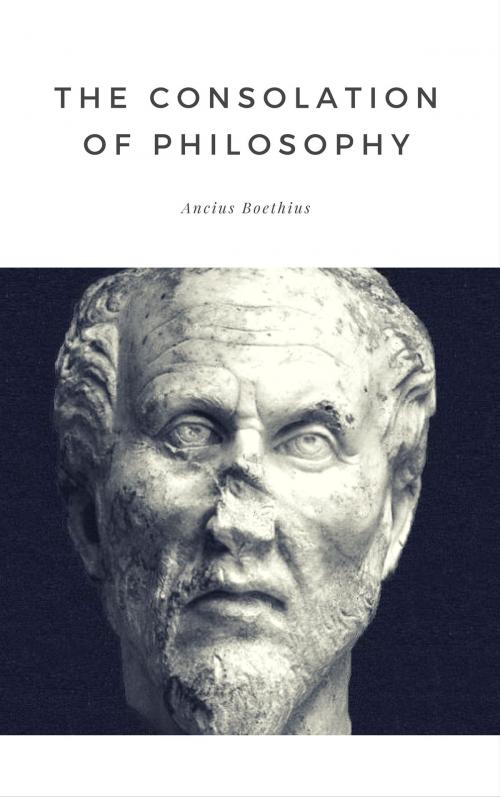The Consolation of Philosophy
Nonfiction, Social & Cultural Studies, Political Science, Government, Civics, Social Policy, Politics, History & Theory| Author: | Ancius Boethius, H. R. James | ISBN: | 1230000249837 |
| Publisher: | Enhanced E-Books | Publication: | July 2, 2014 |
| Imprint: | Language: | English |
| Author: | Ancius Boethius, H. R. James |
| ISBN: | 1230000249837 |
| Publisher: | Enhanced E-Books |
| Publication: | July 2, 2014 |
| Imprint: | |
| Language: | English |
The Consolation of Philosophy has been described as the single most important and influential work in the West on Medieval and early Renaissance Christianity, and is also the last great Western work of the Classical Period.
Written while Boethius was in prison awaiting execution, The Consolation of Philosophy consists of a dialogue in alternating prose and verse between the author, lamenting his own sorrows, and a majestic woman, who is the incarnation of his guardian Philosophy. The woman develops a modified form of Neo-Platonism and Stoicism, demonstrating the unreality of earthly fortunes, then proving that the highest good and the highest happiness are in God, and reconciling the apparent contradictions concerning the existence of everything.
This newly revised edition includes a lengthy introduction and detailed page notes by classical scholar H. R. James.
ABOUT THE AUTHOR
Anicius Manlius Severinus Boëthius, commonly called Boethius (c. 480–524 or 525 AD), was a philosopher of the early 6th century. He was born in Rome to the ancient and prominent Anicia family, which included emperors Petronius Maximus and Olybrius and many consuls. His father, Flavius Manlius Boethius, was consul in 487 after Odoacer deposed the last Western Roman Emperor. Boethius himself entered public life at a young age and was already a senator by the age of 25. He was consul in 510 in the kingdom of the Ostrogoths. In 522 he saw his two sons become consuls. Boethius was imprisoned and eventually executed by King Theodoric the Great, who suspected him of conspiring with the Eastern Roman Empire. While jailed, Boethius composed his Consolation of Philosophy, a philosophical treatise on fortune, death, and other issues. The Consolation became one of the most popular and influential works of the Middle Ages.
The Consolation of Philosophy has been described as the single most important and influential work in the West on Medieval and early Renaissance Christianity, and is also the last great Western work of the Classical Period.
Written while Boethius was in prison awaiting execution, The Consolation of Philosophy consists of a dialogue in alternating prose and verse between the author, lamenting his own sorrows, and a majestic woman, who is the incarnation of his guardian Philosophy. The woman develops a modified form of Neo-Platonism and Stoicism, demonstrating the unreality of earthly fortunes, then proving that the highest good and the highest happiness are in God, and reconciling the apparent contradictions concerning the existence of everything.
This newly revised edition includes a lengthy introduction and detailed page notes by classical scholar H. R. James.
ABOUT THE AUTHOR
Anicius Manlius Severinus Boëthius, commonly called Boethius (c. 480–524 or 525 AD), was a philosopher of the early 6th century. He was born in Rome to the ancient and prominent Anicia family, which included emperors Petronius Maximus and Olybrius and many consuls. His father, Flavius Manlius Boethius, was consul in 487 after Odoacer deposed the last Western Roman Emperor. Boethius himself entered public life at a young age and was already a senator by the age of 25. He was consul in 510 in the kingdom of the Ostrogoths. In 522 he saw his two sons become consuls. Boethius was imprisoned and eventually executed by King Theodoric the Great, who suspected him of conspiring with the Eastern Roman Empire. While jailed, Boethius composed his Consolation of Philosophy, a philosophical treatise on fortune, death, and other issues. The Consolation became one of the most popular and influential works of the Middle Ages.















